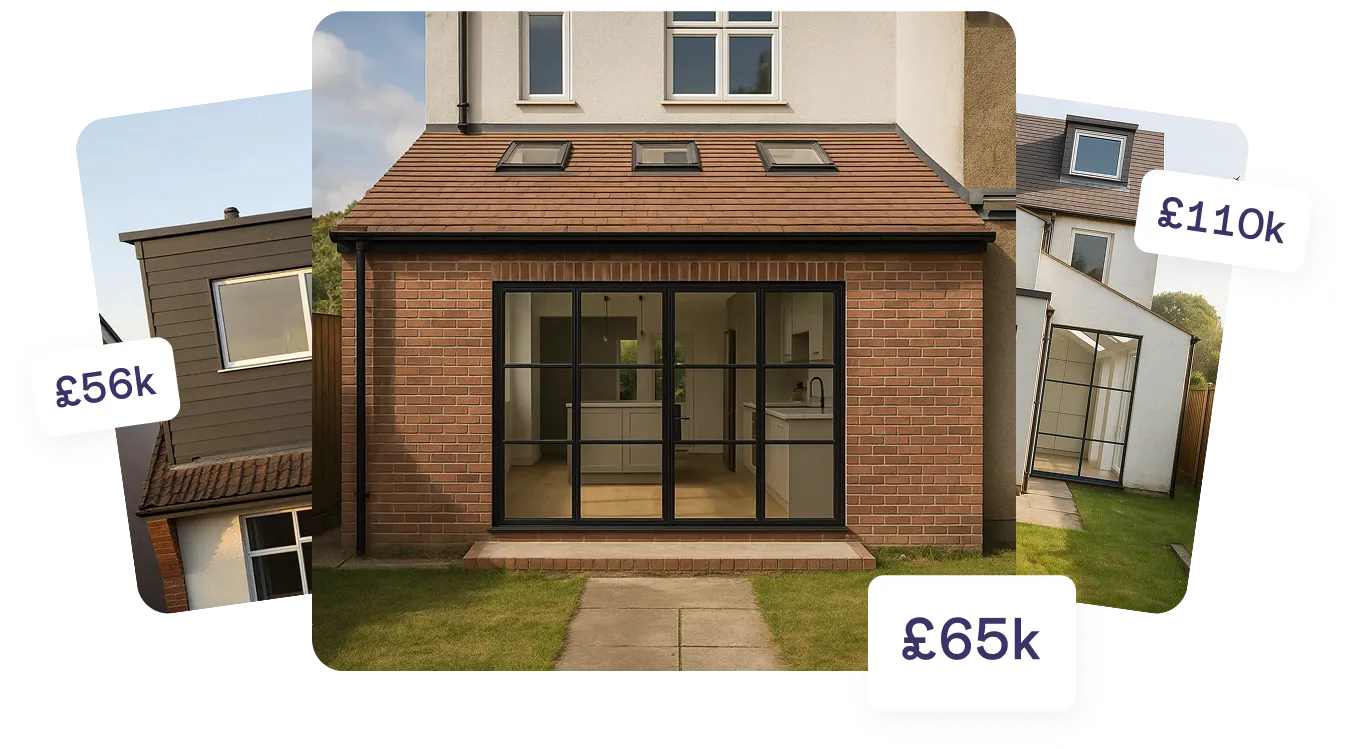Where do we work when we work from home?
The most logical next step for us was to look at how having a home office impacts people’s satisfaction and the findings surprised us. It came to light that home workers who have a home office report being happy at home 75% of the time. However, home workers who are happy with the ability to change their layout are happy more often – 84% of the time.
In addition to this, only 5% of people who said they were unhappy with their work setups would dedicate £10,000 to a home office. Other spaces, like kitchens and living rooms were far more highly prioritised. This strongly suggests that, when it comes to home working, having space that you can adapt from life to work space is more valuable than having a dedicated home office room.

According to Lou Sandor of furniture company, Grain: 'for those who don't have the luxury of a home office it is amazing what you can do in an alcove or even in a hallway with a smaller Grain desk or custom worktop. A desk or table top with appropriate lighting and a comfortable chair or stool are all that is needed for your home office.
If your desk or workspace is in your main living area storage is key, so work items can be stored and a life/work balance maintained. Drawers, shelves, desk trays and pots help create a tidy and minimal workspace allowing you to forget and switch off when the working day comes to a close.'
How to get happy at home and work
Adaptability is key to our home happiness and it’s also of key importance when it comes to working from home. So, our key take away is that you’d benefit more from reimagining your home layout to improve its flexibility and function than from investing in building or redecorating a traditional home office that’s separated from the rest of your space. So let’s get down to it: how can you proactively make your space more adaptable? We run through some game-changing ways to achieve your space’s full, flexible potential and, in turn, enhance your happiness at home.
Get in the zone
A fantastic way of improving the multi-functionality of your home is by opting for a more broken-plan approach to your layout. As we explored in our article about the benefits of broken-plan living, this essentially means that your home layout has a harmonious balance between being open-plan and offering privacy.
After all, some of the benefits of open-plan homes are not to be sniffed at: great flow through the home, spacious and sociable areas and plenty of light. That being said, if you’re working from home, carving out a work zone could be fantastic for your productivity.
So, wondering where to get started? Your commitment to broken-plan living is likely reliant on how much you’re able to spend on it. If your budget has already gone towards creating open-plan space but you’re interested in testing out a broken-plan approach, snap up a room divider. They’re stylish and characterful, as well as offering a visual barrier to keep you focused on the task at hand.
Alternatively, bookshelves can double up as space dividers – retaining the flow through your open space while providing some much-needed separation between social areas and your work zone. A more solid solution is to install a glass partition wall to break up the space and reduce noise while you work (not to mention keeping the heat in if you’re working from home in chillier months!). Book a free advice call with one of our in-house experts to chat through your ideas and get some inspiration for how you could adapt your home.
Anywhere can be an office!
Provided you can curate an environment at home that chimes with your individual working needs, anywhere can be your office. If you’re strapped for space, consider well-crafted furniture pieces that can be used for multiple reasons. For example, a high-quality wooden dining table that you can cover with a laptop mat to prevent scratching the surface or a dressing table with sizable drawers to tidy work equipment into on days off or toiletries during the week.
Room for more?
While our findings suggest that a designated home office isn’t an essential element of home happiness, if your budget allows then increasing the available space with a home extension could be hugely beneficial. After all, having more space will make it easier to arrange it in a way that serves multiple functions. Have a project in mind? Use our Quick Quote Calculator to see how much it could cost you.
Get inspired by real-life projects completed with Resi and see what we could do for you.





